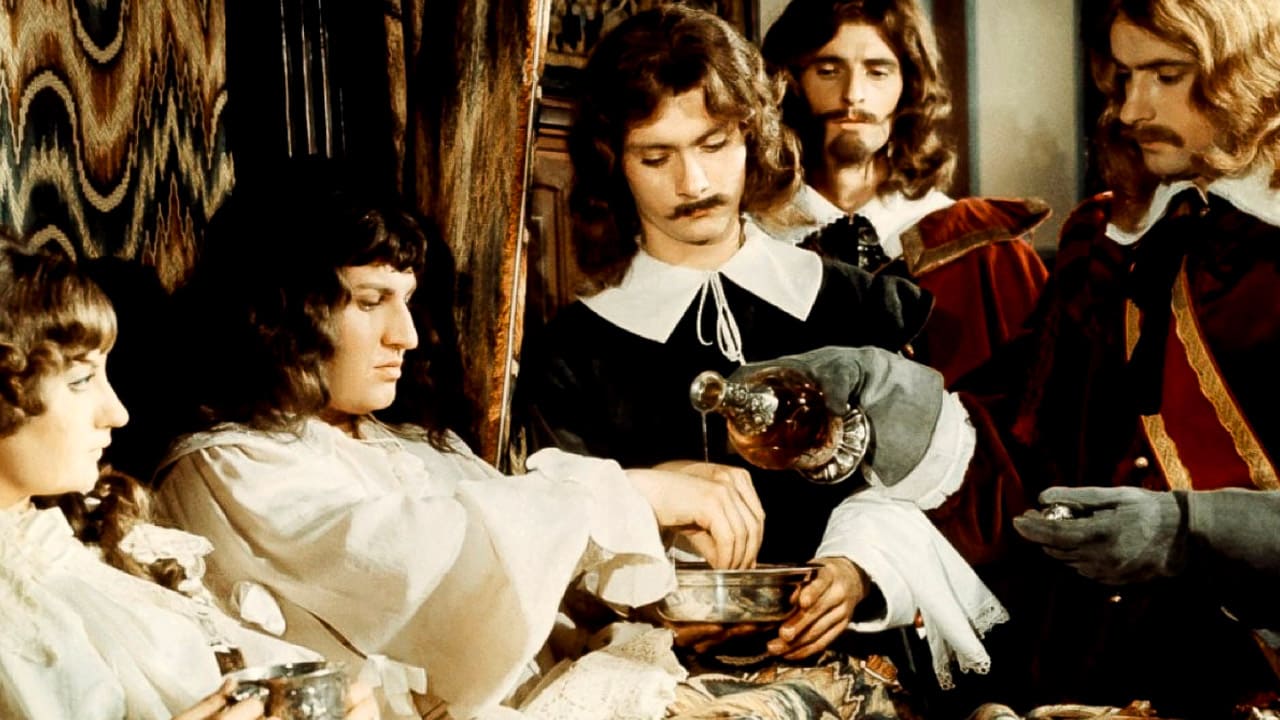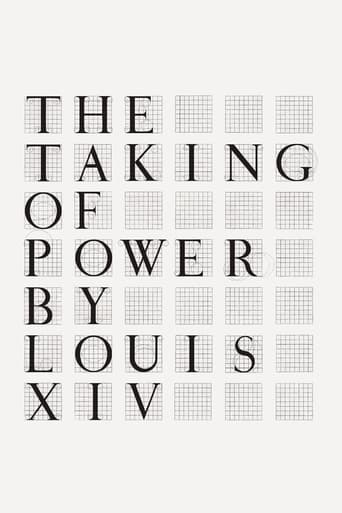

At first rather annoying in its heavy emphasis on reenactments, this movie ultimately proves fascinating, simply because the complicated, highly dramatic tale it tells still almost defies belief.
... View Moreif their story seems completely bonkers, almost like a feverish work of fiction, you ain't heard nothing yet.
... View MoreAmazing worth wacthing. So good. Biased but well made with many good points.
... View MoreI enjoyed watching this film and would recommend other to give it a try , (as I am) but this movie, although enjoyable to watch due to the better than average acting fails to add anything new to its storyline that is all too familiar to these types of movies.
... View MoreThis film demands some patience on many levels, but the ultimate reward of immersion into a man's mind, into the methods a young, inexperienced king utilizes to immobilize possible enemies is worth the 94 minutes. There are various complaints among viewers that the sets are a little shabby, the performances wooden, the costumes too much--but keep in mind that director Rossellini was hired by French television, given a low budget and 26 days to produce a lavish historical film--the film he managed to create is a minor miracle of direction over almost insurmountable odds, including a non-professional, wooden lead that had to read his lines from cue cards--but looked not unlike the real Louis XIV; its fascinating to watch the young king quietly take in his challenges, and one by one overcome everything from a conniving noble to unsympathetic, domineering mother. The rather stately pace and enclosed spaces take some getting used to at first, but after about forty minutes, one can easily catch the spirit of the times and the cunning of Le Roi. Its a fascinating document on several levels, both from historical viewpoint and as a quality film made on a very low budget.
... View MoreIt doesn't seem to be the same filmmaker; at first, if one were to say that this, The Taking of Power by Louis the XIV, were directed by the same man who lensed the "post-war" trilogy of Open City, Paisan and Germany Year Zero, without looking at the credits in the opening minutes, I would say you were mad. It looks stiff, at first, without the same bursts of passion and rugged documentary style that highlighted those films, or the passions of the films he made with his wife, Ingrid Bergman.But sticking with the film, the look and what is revealed with every little glance, every head turn, every cut away or motion to move, reveals a filmmaker who is in fact creating a film with immense conflict, taking an eye on a historical figure who was filled with fear, so much so that it drove him to be a cold force of domination in France. Louis (non-professional actor Jean-Marie Patte) doesn't really trust anyone, not even his mother, the Queen, and it's curious that Rossellini doesn't even feature him until nearly fifteen minutes into the 95 minute running time (at first the film looks to be about a Cardinal, played by the very convincing Silvagni, on his death bed). But, again, sticking with it, we see a tale of a King who could take a hold of power not by getting into hysterics or enraged, but by a stare and way of looking and speaking, out of beady eyes and a toneless baritone.This is in some part an odd credit to Patte, who in move not unlike Robert Bresson was chosen as a first-time actor and apparently never went again in front of the lens. Indeed he looks nervous in front of the camera, and unlike Bresson Rossellini, who according to the DVD notes had only a budget of the equivalent today of 20 grand (that's right folks, 20 grand) and about three weeks to shoot it in, didn't have the time or patience to break down his actor with so many takes. In a way this is a very clever move by Rossellini, but it works to even further an objective that might have been lost or not really met by a "better" actor. I'm almost reminded of a stiffer, less bad-jokey George W. Bush in this Louis XIV, a character who everybody in his council and company pays heed to, even if they don't take him much seriously - at first, anyway.The film also is shot gorgeously, but not always in a manner to get your attention. While Rossellini navigates the story, of Louis facing down a traitor in his ranks, Fouquet (Pierre Barrat) and takes hold as a King who takes his advice from a very small knit group, he stages scenes without a trace of melodrama. In his own way Rossellini is still practicing his own form of neo-realism, only instead of on the streets its in the royal palaces and banquet halls, the fields where the dogs are let loose on hunting day, the meals prepared with a documentary-style precision. Except for one crane shot (ironically directed by Rossellini's son, Renzo, on a day he wasn't there to shoot), it's shot with the simplicity of a filmmaker who trusts his craft so innately that he doesn't need to second guess himself, whether it's in a very tense scene where all the drama is boiling under the surface (or erupting, as happens once or twice between Louis and his mother Queen) or those shots panning across the royal courtyard towards the end.It should be noted, that this is for those with a taste for historical-period dramas, and admirers of the filmmaker. If you're made to watch this in a class without much interest beforehand, it might not be easygoing. Yet for the acquired taste it is compelling cinema, shot for TV but made with a taste for storytelling meant to be seen on a screen that can be seen every look of horror on Patte's face or moment where the colors and costumes and sets seem to threaten to overwhelm the "protagonist". It's not Coppola's Marie-Antoinette, that's for sure.
... View MoreLethargic minimalist film about Louis XIV's rise to power in the mid 17th Century. I suppose if I had a greater interest in the time period or historical characters, I wouldn't have been bored. Case in point, several months ago I saw another of Rossellini's biopics from the same period, Socrates (1970), and, as I am a classics scholar, I liked it very much. I know a lot about Socrates, but almost nothing about Louis XIV. Both are similar in style (although Louis has much less dialogue). I guess Rossellini's point was to subtract the usual pomp and circumstance that surrounds the European royalty of this historical period, depicting everything in a very realistic light. I think I can make at least two legitimate criticisms against this film: 1) I think it takes too long with the first act, the Cardinal's death. It takes more than a half an hour of a 100 minute film (actually, the Hen's Tooth video falls about 9 minutes short of that mark). We learn nothing much about what is actually going on during this half hour. 2) Jean-Marie Patte, who plays Louis XIV, seemed particularly passionless to me. I did like some parts, or at least I found them interesting. At one point, Louis designs his now-famous costume. He tells his subordinates that all nobles will be dressed in exactly the same way. In the following scene, they are. I also liked the meal scene, where we, as well as everyone else in his court, watch as patiently as possible as Louis eats course after course. The nobles in the court feign interest. What weird customs we humans have developed. I wouldn't suggest The Rise of Louis XIV unless you are interested in the period, or are a huge fan of Rossellini. 6/10.
... View MoreThis movie's a good history lesson and nothing else. Very authentic, but somewhat dragging. The actor playing King Louis XIV can't act, which makes it a little irritating as he's the main character. He's just not up to the part. In the movie the king makes all the wise decisions that affected France for years to come in the space of a minute, but as everyone knows Rome wasn't built in a year.
... View More